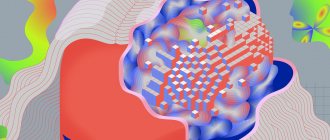May 30, 2018
Food is the main “fuel” for our body. Nutrition is the most important aspect of human life. However, even in this process glitches occur. Sometimes we eat not only to saturate our body with the necessary micro- and macroelements, but also as a means of distracting ourselves from some negative situation.
How often have you noticed that you are “eating” stress? Do you eat a lot and cannot stop until you begin to feel severe heaviness or even nausea? There is a possibility that you have compulsive overeating disorder. This is the same serious psychological illness as, for example, anorexia. And the point here is not a lack of willpower and discipline, this is a violation of the nutrition process, which requires a serious psychological approach to treatment. It is about compulsive overeating that we will talk today.
Ask yourself more often: “Are you really still hungry or are you just eating stress?”
As psychologists say, there is nothing surprising in the emotional connection between a person and food, because since childhood we have been rewarded with food for various actions. Any holiday or just a good event is inextricably linked with a feast. However, such rewards cease to be the norm when food is used as the only escape from negative emotions. Often, at such moments you stop monitoring the amount of food you consume because you don’t feel full. Due to an eating disorder, a person constantly thinks about food and wants to eat more and more.
Causes
You can overcome compulsive overeating if you understand the cause of its occurrence. In fact, there are only two of them: worries and stress. This can be prolonged depression, when a person eats grief, as well as suspiciousness, when a large amount of food is consumed due to imaginary problems. In the first case, the help of a psychiatrist is necessary, in the second, it is enough to change your worldview.
Compulsive overeating is a pathology with a psychogenic etiology, but despite this, research is being conducted on the influence of genetic predisposition on it. Today, three genes are known, the presence of which in the body leads to excessive overeating and, as a result, to obesity.
Why does a person start to overeat?
Typically, psychogenic overeating occurs in women, so it is the risk factors for the female part of the population that have been best studied. There are two main causes of this disorder. The first is the inability to manage your emotions, the inability to calm yourself down at the right moments. The second and more common reason is an acute feeling of loneliness. This happens even if you have a permanent partner and many friends. Psychogenic overeating can be triggered by a lack of attention and interest from loved ones.
When diagnosed, binge eating disorder is often confused with bulimia, depression, or weight problems, since all of these disorders are accompanied by excess food intake. Very often, such patients are referred to a nutritionist and intensive sports training is prescribed. But scientists have only recently figured out how to really treat psychogenic overeating.
Clinical picture
Symptoms of compulsive overeating are noticeable not only to the person suffering from it, but also to those close to them. They appear as follows:
- Lack of appetite control.
- Eating food even when completely full.
- Gluttony during periods of psycho-emotional excitability.
- Feelings of guilt towards oneself after bouts of gluttony.
- Food is the best way to cope with sadness and loneliness.
- Eating a large amount of food in a short period of time.
Most often, this pathology affects mentally unstable and susceptible people who cannot openly express their emotions and eat them with unlimited amounts of food. Moreover, it can be both sweets, smoked foods, fast food, and an unlimited amount of beer.
A person suffering from compulsive overeating cannot independently control his appetite, so close people often help overcome the craving for eating food.
Neuro-eating disorder - description of the disease
According to the Diagnostic and Statistical Manual of Mental Disorders, psychogenic binge eating (hyperphagic stress response) is an independent disease with a separate coding 307.51. A patient with an eating disorder is used to dealing with negative emotional stress and bouts of gluttony. The disease is manifested by a brutal appetite, to satisfy which an abnormal amount of food with a high calorie content is required. A nervous attack can be triggered by serious factors (the loss of a family member, injury) and minor reasons - speaking in a raised voice, missing a bus, etc. Nervous eating disorder is caused by mental causes, there is no physiology in the cause-and-effect relationship. Food in this case is a tonic that allows you to forget about the problem for a while and relax. A patient who has experienced a nervous shock is trying not to feed his stomach, but to drown out his feelings.
It is important to distinguish between physiological hunger and nervous appetite. This is an important step on the path to recovery and selection of competent treatment:
| Nervous hunger | Physical hunger |
| It can occur against the background of satiety, it occurs unexpectedly and sharply. | It develops gradually, the body does not require urgent saturation. |
| During attacks, the body requires unhealthy food - the priority is fast food, fatty foods, sweets, starchy foods, etc. | You can satisfy your appetite with any food, homemade and healthy. |
| The portion size significantly exceeds the usual volume, and there is no control over the amount eaten. | A person eats exactly as much as is needed to satisfy hunger. |
| The portion size significantly exceeds the usual volume, and there is no control over the amount eaten. | The physical need for food arises with a feeling of “sucking in the pit of the stomach”, weakness. |
| Feelings of guilt and shame arise after eating. | After eating, a feeling of satisfaction comes and strength appears. |
The causes of mental disorder may be genetic.
Diagnostics
If there is a need for excessive food consumption, you need to contact a therapist or a psychotherapist immediately, since compulsive overeating is a psychogenic pathology. In order to confirm or refute the presence of overeating, anamnesis and a special test are taken.
The diagnosis of “compulsive overeating disorder” is confirmed if the test results in 3 out of 5 criteria:
- Eating at any time of the day and even in the absence of hunger.
- Discomfort after eating.
- Eating food quickly.
- Desire to eat alone.
- Feeling guilty towards yourself after another overeating.
In addition, body mass index (BMI) is monitored: the patient’s weight before the stressful situation and at the time of contacting a specialist. Its increase confirms the diagnosis.
Psychological aspect of the problem of psychogenic overeating
Physiological and genetic reasons can be a consequence of the development of a food-related illness, but the psyche plays a central role.
Leading psychotherapists, in describing clinical cases of compulsive overeating, note that the onset of the disease is preceded by negative life events. Social and physiological factors can cause such stress.
To understand whether you have a problem and whether you need the help of a psychotherapist, you should honestly answer a number of questions.
- Have you started to notice that your diet is difficult to control?
- Are all your thoughts connected with food?
- do you prefer to eat alone?
- Do you tend to overeat due to stress, distracted from current problems?
- Do you feel guilty, which affects the pleasure of eating?
- How often do you start eating without feeling hungry?
- Do you find it difficult to refuse food if you are given a treat?
If you answered yes to 4 or more questions, it makes sense to contact a medical facility for consultation and clarification of the causes of your nutritional problems.
Treatment
Getting rid of increased appetite without the help of specialists is quite difficult, since the problem requires the intervention of a psychotherapist. Treatment of compulsive overeating includes removing a person from a complex psycho-emotional state and eliminating metabolic syndrome, which leads to metabolic disorders.
Psychotherapy
Overeating can be overcome using several popular methods, each of which is prescribed in accordance with the individual characteristics of the patient:
- Cognitive behavioral therapy. The course of such therapy lasts up to six months, and with its help you can learn self-control, improve the quality of life, and overcome stress.
- Group psychotherapy. If the cause of overeating is insufficient socialization (dependence on outside opinions), therapy is carried out in self-help groups. This helps a person understand that he is not the only one who has this problem and learn communication skills. If such a problem occurs in children, then family psychotherapy is required.
- Suggestion, hypnosis. The effectiveness of this technique has been confirmed by numerous studies. Its advantage is almost instantaneous action. After 3-4 sessions of suggestion, a person recovers and returns to normal life. The downside is that he doesn’t understand why he stops eating a lot of food uncontrollably, so if stress occurs in the future, relapses are possible.
- Interpersonal psychotherapy. The technique is effective, but quite long - 8-12 months, which is why it is not used as often as others. With its help, a person has the opportunity to get out of a difficult psychological situation, begin to perceive himself as an individual, reduce the degree of anxiety, and learn to resist stress.
It is impossible to cope with food addiction only with the help of psychotherapeutic techniques, so treatment must be comprehensive.
Nutrition
Part of the treatment for excessive overeating is proper nutrition. Since pathology treatment is carried out on an outpatient basis, the patient himself is responsible for its outcome. You can cope with compulsive overeating by following these recommendations:
- Distinguish biological hunger from psychological hunger and eat food only in the case of the former.
- Do not follow diets for weight loss; it is better to purchase dishes that will only hold a small portion.
- Find a way to relieve psycho-emotional stress (reading books, hobbies, playing sports, yoga, music, watching movies, etc.).
- Change your diet, eat low-calorie healthy foods. Avoid fast food, baked goods, smoked meats, marinades, carbonated drinks, and alcohol. Eat cottage cheese, high protein foods, vegetables and fruits (at least 0.5 kg per day).
- Do not limit the consumption of your favorite foods, but only reduce it. For example, one favorite cake or a pack of chips a week will not harm your health. Strict restrictive boundaries can trigger stress, resulting in increased food eating.
If you can’t organize your diet on your own, you can contact a nutritionist who, taking into account the recommendations of other specialists, will create an individual diet without harm to health.
Medicines
Treatment with drugs involves taking groups of drugs that regulate the functions of the nervous system. Most often prescribed:
- Antidepressants: Fluoxetine, Tryptophan, Sertraline.
- For the treatment of obesity: Metformin, Orlistat, Exenatide, Senade, Pramlintide.
- Antiepileptic drugs: Sibazon, Primidon, Valparin.
Also, for the treatment of this pathology, a special drug “Lizdexamfetamine” has been developed, which normalizes the eating behavior of people prone to overeating. It is used in many countries of the world, but in Russia it is prohibited because it is on the list of drugs under the control of the Russian Federation.
What can cause the development of bulimia?
The causes of bulimia are most often mental in nature. Considering that from 10 to 18 years the body is in the stage of growth and formation, proper and nutritious nutrition is necessary for the development of the musculoskeletal system, internal organs, and secondary sexual characteristics. All these processes are accompanied by changes in hormonal balance and enormous emotional and mental stress. Adolescents' resistance to stress is practically minimal, so any critical remark regarding appearance, figure or weight is perceived as something tragic and requiring immediate action to correct the so-called “shortcomings.” The simplest thing a teenage girl or a girl aged 18-25 can do is simply eat less or go on a diet. Many people try to lose weight and get closer to standard “skinny beauty” through intense physical activity in gyms or gyms. But the growing body demands its toll, hence the inevitable breakdowns and bouts of overeating, after which patients begin to hate themselves for their weakness and try to get rid of the consumed food as quickly as possible using artificially induced vomiting or taking laxatives. Awareness of the wrongness and harm of such actions comes much later, when health and psyche begin to suffer. At the same time, all mental and emotional potential is spent not on studying or communicating with friends, but on constant thoughts about losing weight and monitoring the readings of the scale. Such fixation leads to a decrease in cognitive abilities, quality of life, loss of emotional connections with family and peers, and psychological isolation. In fact, all the delights and joys of youth become inaccessible to patients with bulimia, further exacerbating the problem of loneliness. It seems to patients that all problems will be solved when they manage to reach a certain weight and approach the so-called standards. In addition, the process of cleansing the stomach through vomiting brings not only physical but also emotional relief, one might even say pleasure. This is most likely due to the production of endorphins (hormones of joy) when getting rid of food that overwhelms the stomach. At the same time, patients experience a joyful feeling of crystal purity. This is how a kind of mental dependence on artificially induced vomiting develops. Other causes of bulimia may include the following factors: • Hereditary predisposition. This is evidenced by the increased risk of bulimia in individuals whose family had relatives suffering from this pathology. • Strict diets and dietary restrictions leading to imbalances and nutritional deficiencies. • Pathological processes in the food center of the brain. • Metabolic and hormonal disorders. The most common sensations experienced with bulimia are: • hopelessness and helplessness; • hatred of one's body and personality; • anger and anger at yourself and others, especially those who talk about food; • anxiety for your health and destiny; • panic attacks and hysterics, • feeling of loss of control over the body and life; • feeling of loneliness, uselessness, etc. All these conditions sooner or later lead to depression, even if there is a temporary feeling of pride in one’s determination and willpower not to eat or to get rid of food taken artificially. In its extreme manifestations, depressive disorders can provoke thoughts and even suicide attempts.
People most susceptible to developing bulimia and other types of eating disorders are people who have low self-esteem, who have experienced psychological trauma or stress, who are prone to perfectionism, and who are already depressed.
The danger of bulimia is that the health problems that arise as a result often remain for life (especially over a long period of time). These are primarily disturbances in the gastrointestinal tract, metabolic processes, cardiovascular system and kidneys. In addition, it is impossible to restore crumbled and fallen teeth. Even with prolonged remission, bulimia can start again due to a word or event that becomes a trigger for a new process. Therefore, even a significant reduction in bulimia attacks is already progress in the fight against the disease.
Consequences
If treatment for binge eating disorder does not bring positive results, physiological problems may arise, such as:
- Diabetes mellitus type 2.
- Arterial hypertension.
- Hormonal imbalance.
- Atherosclerosis.
- Metabolic syndrome leading to obesity.
- Increased blood glucose levels.
- High cholesterol.
- Heart diseases.
- Decreased immunity.
When going for a consultation with a psychotherapist, it is important to understand that compulsive overeating is a problem that cannot be dealt with only with the help of medications. For the result to be positive, the patient must understand the extent of the consequences of this disease and make every effort to achieve it.
“I feel cramped within myself”
Photo: depositphotos/photographee.eu
Evgeniya, 52 years old
I increasingly catch myself thinking that life is cramped and uninteresting for me: my entire existence revolves around food. I am ready to eat always and everywhere, in huge quantities. Sometimes this makes me scared. There were times when I was only concerned about food, I forgot about my family and friends. I have an adult daughter, her father died in a car accident. And I died after the death of my husband. I had prolonged depression, I could sit on the couch and eat all day. I forgot about everything, even about my daughter - my mother took care of her.
I would eat my fill, then drink a glass of water, go to the toilet and make myself vomit.
For some time I went to sessions with a psychologist, I managed to climb out of this hole, but these bouts of gluttony are returning. I tried to watch my figure, sometimes I fought for the treasured kilograms using not the healthiest methods. The doctor diagnosed bulimia nervosa. I took a course at the Institute of Nutrition, went to hypnotic sessions, and as a result, some psychotherapist prescribed me antidepressants.
At some point I realized: “I don’t want to live like this anymore.” I changed my doctor and stopped taking the pills. I'm tired of just living and chewing my life. I eat right and exercise. In a year I lost 15 kilograms. And this is not the limit.
Antidepressants simply temporarily suppress the symptom. These are all attempts to reduce anxiety. As soon as a person stops taking the pills, the problem returns. If the patient cannot understand the situation on his own, experts recommend undergoing a course of psychotherapy or hypnotherapy - it all depends on the degree of anxiety.
“I want to reward myself with food”
Photo: depositphotos/vvoennyy
Vladimir, 27 years old
For me, delicious food has always been something special. As a child, I was often left with my grandmother. Now I’ll dispel a huge stereotype - she wasn’t a very good cook. But as a person of the old school, she fed me to my fill. She allowed her to eat something tasty only as a reward, well, that’s what all the children had: “eat soup, get candy, do your homework - I’ll buy ice cream.” Mom did the same. And later I noticed that I perceive food as encouragement.
For me, delicious food is a way to say “thank you” to myself. For a hard work week, for calmness in response to my wife’s tantrums, for lack of sleep. I'll eat and I'll feel better
Eating has already become some kind of ritual. Sometimes I’m driving home from work, the day is not going well, and the only thought that warms me is: “I’ll come home and eat something sweet.” My wife, to be honest, doesn’t reproach me for this. He says the main thing is that I don’t drink.
It is known that sweets are natural antidepressants. Therefore, psychogenic overeating is usually associated with the fact that a person wants to change his mood, forget about fatigue, stress, obligations, and forget about high self-discipline. Unfortunately, products made by food corporations become dependent on ingredients. Perhaps food manufacturers do not understand anything about biology, but they know for sure that fat, combined with salt or sugar, will sell itself.











